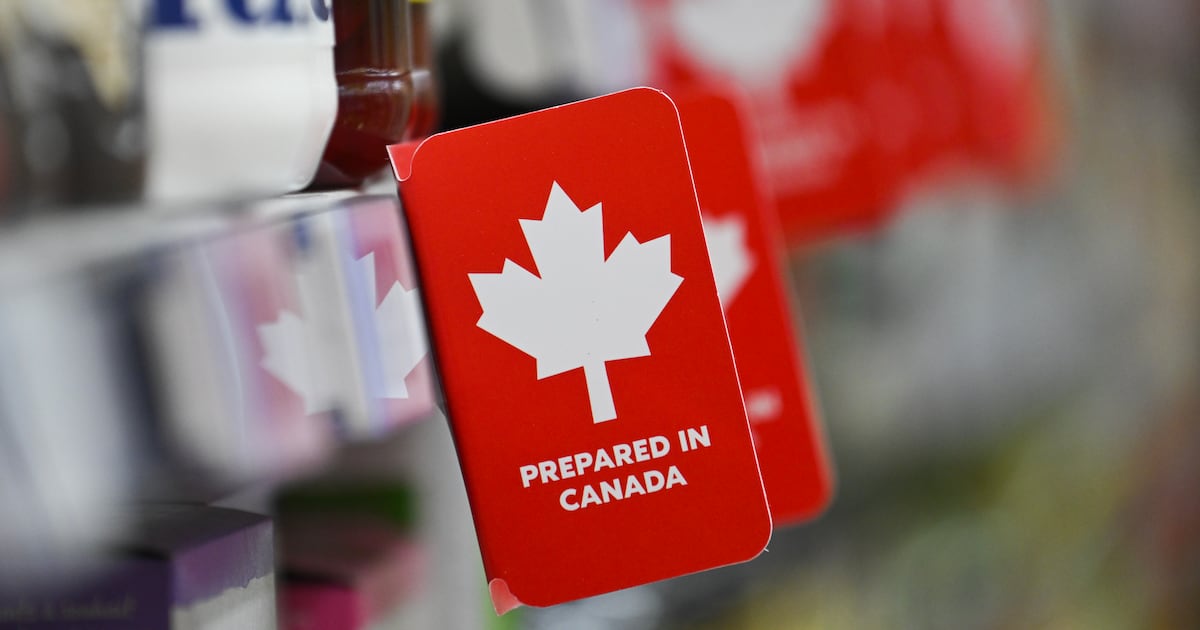Top Stories
Canadians Shift to Local Food Amid Rising Grocery Costs

UPDATE: A new report reveals that Canadians are increasingly prioritizing local food products as grocery prices surge. Released on October 9, 2023, the biannual Canadian Food Sentiment Index indicates that 51.9% of Canadians now prefer local options, a dramatic rise from 33.5% just one year ago.
The report, based on a survey of nearly 3,000 Canadians, highlights that food inflation remains a critical financial worry, with 80.6% of respondents reporting higher food expenses over the past year. As economic uncertainty grips the nation, many consumers are adapting their purchasing habits, shifting towards local products to combat rising costs.
Sylvain Charlebois, a professor at Dalhousie University and director of the Agri-Food Analytics Lab, stated, “Canadians remain deeply concerned about food affordability.” He emphasized that consumers are now shopping more strategically, reflecting a shift in behavior due to ongoing economic pressures.
The survey indicates that 55.8% of respondents regularly verify the origin of their food, a trend that has gained momentum amidst the ongoing trade dispute between Canada and the U.S. “There’s a measurable movement to support Canadian products,” Charlebois explained, suggesting this sentiment could boost local goods during the upcoming holiday season.
With food insecurity at a record high, the data also reveals that 25.5% of Canadians struggle to afford basic food items. Nearly 48.6% are actively seeking out sales and discounts to cope with inflation. Affordability is now the top factor influencing food purchase decisions, followed by nutrition and taste, as consumers navigate their grocery budgets with greater care.
Canadians are feeling the financial strain, with average monthly food spending rising from $497 to $515 in just six months. Statistics Canada reports a 3.4% increase in food prices year-on-year, outpacing the overall consumer price index increase of 2.2%.
Charlebois noted, “People are spending more at the grocery store. While it’s unclear if they’re getting more for their money, they are definitely spending more.”
Trust in food institutions remains fragile. Major grocers received a low trust score of 2.99 out of five, while independent grocers scored slightly better at 3.31. Canadian farmers topped the trust scale with a score of 3.63. “Consumer trust in major food systems is waning, especially among grocers,” Charlebois remarked.
The findings from the Canadian Food Sentiment Index underscore the urgent need for consumers to adapt in the face of rising costs and economic uncertainty. As Canadians increasingly focus on local food sources, the implications for the food industry could be significant.
Next Steps: As the holiday season approaches, watch for trends in consumer behavior towards local products and the potential impact on Canadian agriculture and food markets.
-

 Politics2 weeks ago
Politics2 weeks agoSecwepemc First Nation Seeks Aboriginal Title Over Kamloops Area
-

 World4 months ago
World4 months agoScientists Unearth Ancient Antarctic Ice to Unlock Climate Secrets
-

 Entertainment4 months ago
Entertainment4 months agoTrump and McCormick to Announce $70 Billion Energy Investments
-

 Lifestyle4 months ago
Lifestyle4 months agoTransLink Launches Food Truck Program to Boost Revenue in Vancouver
-

 Science4 months ago
Science4 months agoFour Astronauts Return to Earth After International Space Station Mission
-

 Technology3 months ago
Technology3 months agoApple Notes Enhances Functionality with Markdown Support in macOS 26
-

 Top Stories1 month ago
Top Stories1 month agoUrgent Update: Fatal Crash on Highway 99 Claims Life of Pitt Meadows Man
-

 Sports4 months ago
Sports4 months agoSearch Underway for Missing Hunter Amid Hokkaido Bear Emergency
-

 Politics3 months ago
Politics3 months agoUkrainian Tennis Star Elina Svitolina Faces Death Threats Online
-

 Politics4 months ago
Politics4 months agoCarney Engages First Nations Leaders at Development Law Summit
-

 Technology4 months ago
Technology4 months agoFrosthaven Launches Early Access on July 31, 2025
-

 Lifestyle2 months ago
Lifestyle2 months agoManitoba’s Burger Champion Shines Again Amid Dining Innovations



















